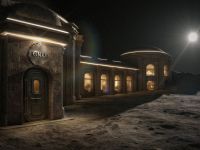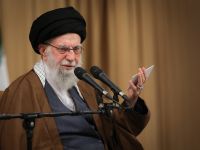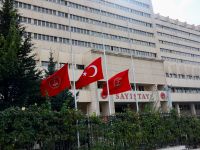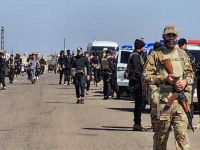Sixth annual Masri Institute workshop addresses Energy Finance in the Middle East
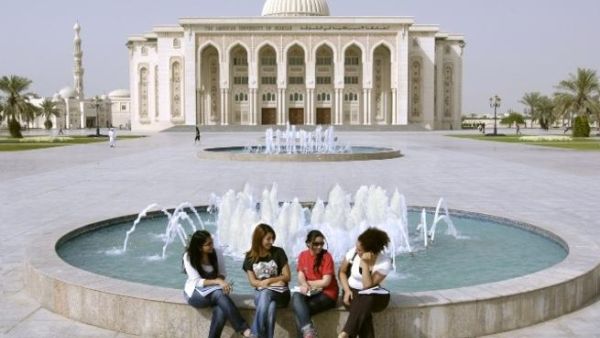
The Munib and Angela Masri Institute of Energy and Natural Resources held its 6th annual workshop on Friday, January 22, 2016.
Entitled “Energy Finance in the Middle East: Uncertainties and Opportunities”, the workshop aimed to offer a better understanding of current and emerging financing models of energy projects in the region and to highlight the challenges that investors and governments face, particularly when considering power projects. It aimed also to contribute to AUB's expanding energy programs and research.
Speaking in the opening ceremony of the workshop, AUB President Fadlo Khuri said that bringing academics, investors and developers, experts and policy makers together to discuss issues related to financing energy projects is the most effective way in arriving to appropriate assessment of current realities and future prospects for investments in energy.
“Universities are best placed to play that facilitating role since academic institutions provide a creative and impartial environment for discussions and debates, and AUB cherishes this role,” said President Khuri.
AUB Trustee Munib Masri said in his welcoming speech: “Academic research mixed with professional expertise in energy and finance can form a powerful alliance to inform public policies in the region and provide a better understanding of challenging energy finance questions as well as answers to those questions”. “The scale of investment in energy generation projects and energy infrastructure in the Middle East is estimated to be in the order of tens of billions of US dollars per year, distributed over a variety of energy sources. Investment in renewables and in nuclear energy has been increasing annually and a better understanding of current and emerging financing models of energy projects in the region is needed”.
FEA Dean Makram Suidan highlighted the importance of such forums to strengthen dialogue among experts from different disciplines in order to answer complex questions. “The workshop reaffirms the University's commitment to creating forums to engage in the development of solutions for the region,” he added.
H.E. Arthur Nazarian, Minister of Energy and Water, affirmed the role of the Ministry and its affiliate, the Lebanese Center for Energy Conservation (LCEC), in promoting renewable energy. He emphasized the interest of the Ministry to cooperate with AUB and involve its experts as needed and based on recommendations and outcomes produced by the workshop.
The workshop was also attended by a team representing the UN-ESCWA, headed by Mrs. Roula Majdalani, Director of the Sustainable Development and Productivity Division. In her welcoming remarks, Mrs. Majdalani hoped that cooperation between the Masri Institute at AUB and UN-ESCWA would continue, particularly on such important topics such as the ones discussed in the workshop.
During the workshop, a forum of fourteen experts and three panels focused on energy financing issues of critical relevance for Lebanon and the region.
Commenting on the outcomes of the workshop, Dr. Ali Ahmad, energy policy expert and lecturer at AUB said: "A substantial challenge that energy investors face in the region, regardless of the technology involved, is the weak legal structure and government support and also the lack of data for making an assessment of investments and risks.” And on how the knowledge gained in this workshop could be utilized, he added “Looking forward, we hope to utilize the topics discussed today as spin-off ideas for research projects, particularly for AUB's Energy Studies students.”
The themes addressed by the workshop were: Regional outlook and country perspectives; Country- and technology-based challenges; Models of project financing; and Risk management and influences.
AUB Energy Studies graduate students are key to the University’s efforts to expand meaningful regional contributions to scientific knowledge. The workshop offered them an invaluable opportunity to interact with prominent academic and corporate experts, and to participate in discussions that naturally brought several disciplines together.
Dr. Nesreene Ghaddar, Director of the Munib and Angela Masri Institute of Energy and Natural Resources at AUB, stated that this workshop is part of the Masri Institute’s aim to be more responsive to current world energy shifts and foci and to answer questions of interest to the general public. “The involvement of Energy Studies students in the preparation for this workshop has been key since several of them are pursuing their research in topics that are more evidence based and policy-oriented,” said Dr. Ghaddar.
Background Information
American University of Beirut
Founded in 1866, the American University of Beirut is a teaching-centered research university based on the American liberal arts model of higher education. AUB has over 9,000 students and over 1,200 instructional faculty members. The University encourages freedom of thought and expression and seeks to graduate men and women committed to creative and critical thinking, lifelong learning, personal integrity, civic responsibility, and leadership.


